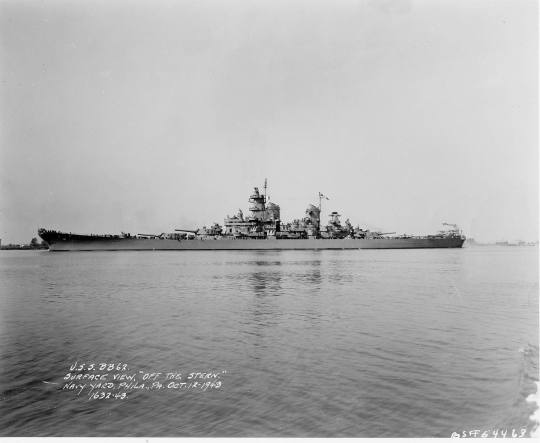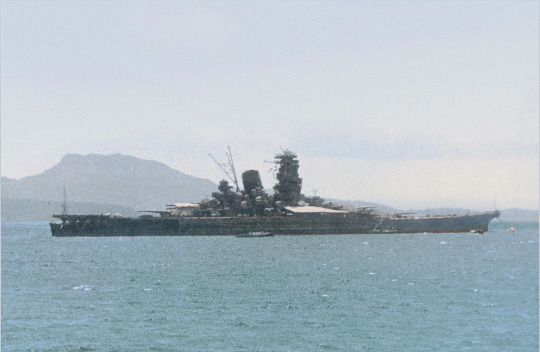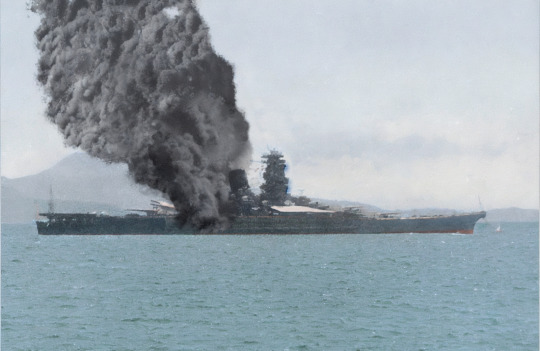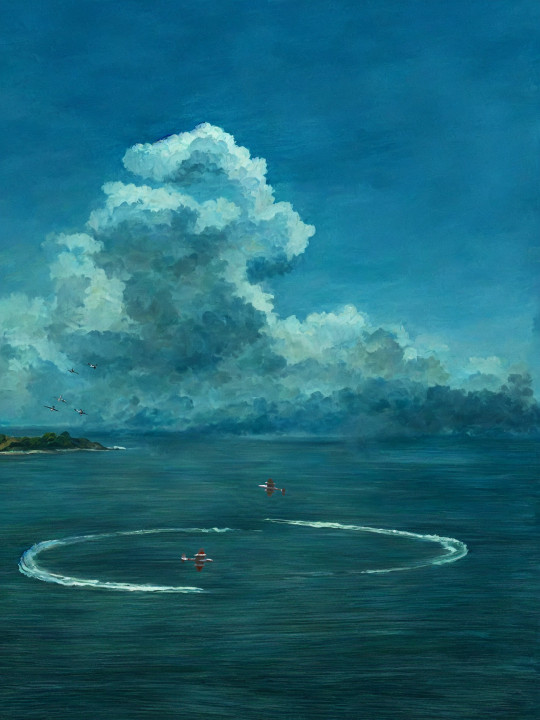Stories, artwork, and other side content from an alternate history game.
Don't wanna be here? Send us removal request.
Text
There must be more to life.
16 September 1941
Margarete climbed the steps to her apartment, struggling to balance her heels on the stairs, and the satchel that always seemed far heavier in the evening than the morning. You would think that just sitting at a typewriter all day and typing out notes, schedules, tables, wouldn't wear as much as it did, but her back always ached, and her wrists. Typewritten text swam in front of her eyes in the dim stairwell, and she leaned on the balustrade for the last few steps, then against the wall as she trailed down the hallway to her door. She turned the knob, stumbled inside, and slumped down on the couch.
Maybe Father had been right. There wasn't any glamour in this, living alone in an apartment block during the evening and typing up meeting minutes about steel production during the day, trudging between them on crowded trains and sterile concrete streets. If she moved back home, it'd probably be for the better-- her parents would be thrilled to have her back, she could help run the shop. She knew because Mother's letters always said so.
It was sweet, and sometimes, on nights like this, the idea tempted her. She did look forward more to her brother's letters, even if he made it out that he was having as poor a time as she was, holed up in one of the garrison forts on the French coast. Father would probably say that the grass was always greener for her somewhere else, that she just needed to pick something, and she smiled at the image of him chastising her before reaching back to turn the radio on.
Her brother's last letter was still on the end table as well. She'd gotten it about a week ago, and hadn't written a reply-- maybe writing Kleis would be a good way to unwind. As she pushed her glasses up on her nose, she unfolded the paper to read it again.
Grete I'm pleased to hear you got the typist job. I know Mother and Father were a bit worried about that, but they don't offer classes in it for no reason. And who knows, maybe you can get someone to pick you up as a secretary or start helping them with their actual planning. Pick you up as a wife, I'd say, but I remember how into your Bund work you were before I left. Maybe it'll be somewhere you can put your organizational skills to use. It's lucky for your new employers that they have you, but I wish you were here instead of our staff. Sometimes I think they're way too lax about things-- the French State might be allied with us now, but it's not like every *Frenchman* is. We go out without proper armament one too many times like we're cops or something and someone is liable to get hurt.
Staff says it fosters goodwill to not be carting heavy guns around on routine patrol though, makes people think of us as, yeah, gendarmes. Supposedly the secret police has stuff locked down well enough, and I'm fine so far, so maybe I just wanna play with a soldier's toys. ...besides that, they should really authorize tropical wear for Occitania. I don't care that it's Europe, in the summer like now I feel like I'm going to melt in this stupid wool tunic. At least the girls think it's sharp. Oh, also. We had some leave a little while ago, so me and some buddies took a train over to Marseilles to spend the day, and there was a guy testing out a new kind of color film that wanted a test subject. We told him he could shoot us, if he sent us copies, and he went for it. Really cool stuff-- here's one from my share of the prints. Write soon. Love, Kleis
Margarete studied the photo with a wistful smile. Three men with private's tabs, Kleis and two others, lounged on the patio of some French cafe in the afternoon sun. Like they were really here.
She kicked off her heels and took the letter and photo over to her desk, thinking about her reply-- but maybe he'd already written another letter, she thought. Sometimes he did do that, if she took a while to get back to him, so better to check the mail first.
In the basket was a mailer from the Bund Deutscher Mädel about some fundraiser, their monthly magazine, a bill, a newspaper…
...and a letter from the Wehrmacht. Not a letter from Kleis-- better stationery, like cream; a red wax seal stamped with the Eagle.
Margarete Anna Reuenthal Sister of Gefr. Nikolaus Ernst Reuenthal Andreasstraße 9, Apt. 8 Düsseldorf, Germany
Gefreiter..? Kleis was a private. She took the letter back to the desk, and-- it seemed wrong to simply rip it open like she would with something less official, and something like sacrilege to break the seal-- slit the top with her letter opener to get at the missive inside. It was typewritten, with a signature at the bottom.
Frau Reuenthal: I am sorry to inform you that your brother Nikolaus gave his life in the defense of the peace on 12 September 1940. The exact circumstances are beyond my authority to divulge but please rest assured that those responsible will be brought to justice. Niko was a good soldier. My heart is with you. Hauptmann Gregor Jung Company C commander MB Aigues-Mortes
ᛦ
Kleis's friends were looser lipped in person. There had been an ambush, some partisan cell who still deluded themselves that the Americans or the British would come to the rescue and sweep the Germans out. A grenade trap had blown the front off the truck, and Kleis, gunning from the back with an SMG, had taken a rifle bullet from the hills.
The undertaker had done a good job with his body. You wouldn't have known he was dead, looking at him laid in the box with his new collar tabs. The Gestapo were on the case, a man in a notably nondescript black suit had assured them. Heads would roll in the south of France, and in the secret police. Petain was deeply embarrassed, by all accounts, would cooperate more with the German garrisons in flushing out troublemakers.
Her father seemed far too stoic. When she and her parents had gone to see the body, he hadn't cried, or betrayed hardly any emotion at all, even with Margarete hiding her face in his shoulder and Mother refusing to even look in the casket. "Yes," he'd just said, so quietly she saw his beard move rather than his mouth. "That's my Nikolaus."
She should have realized it would come to an end at some point. At the funeral, he'd stood up, pulled away from Margarete with notes in hand, and strode to the podium to give his eulogy. "My son followed in my footsteps," he started, "quite against my wishes. I fought in the Great War, as many of you did, and forbade him to fight in what many of us believed would be another. But fortunately for him, his war ended quickly. With his help. Thank God."
"…The letter that his commander wrote me and my wife--" he shuffled some papers, produced a letter like the one Margarete had received and nodded to its author in the crowd-- "said that he 'gave- gave his life in defense of the peace'. " The break in his voice was the only forewarning; an instant after quoting the paper, his frame shook, and he gripped the lectern, turning his face down.
After a while, he spoke again, through tears. "I don't mean to insult you, Herr Jung. But isn't that the height of irony? I have to ask where the security police were. Why my son was given occupation duty in a country with whom we signed a peace treaty over a year ago." None of this was part of the speech that Margarete had heard him practicing; a few murmurs passed through the audience, but Herr Reuenthal had nothing more to say. He regained his composure, pulling a handkerchief from his pocket to dab at his eyes.
"I am sorry. This is difficult for me. My only son." He straightened up, turning away from the congregation to look at Kleis in repose. "God rest his soul."
ᛉ
Rather than go back to Düsseldorf, Margarete went home with her parents, back to the village and to her old bedroom. She ate breakfast with her little sister, walked her to school, said hello to old friends who were teachers or postmen now. Kleis's room sat empty and full of his things, just as it had after he'd left two years ago.
Nobody mentioned it, but it was all they really talked about. Father got more into military matters, studying the chain of command and equipment as if he might find someone to blame; when Anja said one of her school friends' fathers was visiting from his posting in Norway, Mother had to feign enthusiasm. More than once they asked Margarete if she would move home for good and leave that "dreary apartment on the border."
She didn't know herself for a while, but one night over dinner, she heard herself say, "no, I think I'm going to join the SS."
Father stood straight up out of his chair, whether to impose himself on her as he forbade it or simply in astonishment, she wasn't sure; Mother let out something like a sob. And why the SS anyway? Staring at her food, she barreled forward to justify herself, the words coming out unplanned.
"They wouldn't put me on the front-- I'd be doing paperwork-- and Papa, you've wondered whose fault it was? Wasn't it all the red tape and the rules? In the end, wasn't it that Hauptmann's fault?"
"I'm a great organizer. I could make sure nothing like what happened to Kleis ever happens again. People are scared of SS-men. They'd do what I say. And I was so active in the Bund that they'd practically have to let me in."
"I miss the BDM too. Kleis had friends, comrades…I just type notes all day and let boring old businessmen hit on me." Tears started to drip onto her dinner.
"Honey…" Mother finally said something, scooted her chair closer to pull Margarete in for a hug. "You can come home. I knew you'd hate that job. You can be a Bund leader at Anja's school. You don't have to join the military to help people. Sit down, darling," she said to her husband, gesturing for him to relax. "Let's talk about this."
ᛋ
Her parents convinced her. They talked about it, Mother told her there were always openings at the school for secretaries or troop leaders and Anja told her that some of the teachers missed her. Father offered to help her move out of her apartment, which she refused. It wasn't that much stuff, she said.
Margarete took the train back to Düsseldorf, fully intending to pack things up, say goodbye to her landlord, and come home. The radio, the posters of singers, the books, her clothes, all went into boxes. Kleis's letter was still on her desk, and his photo, his last photo. She picked them up to tuck them in her satchel…the color made it seem so real.
Next would be to take apart the furniture-- maybe she could ask a neighbor for help. Or a carpenter would probably be better. She crossed the room to the phone to call someone, flicked through the phonebook to C…past C. H- N- S.
Schutzstaffel, recruitment office. DRake 3019.
She dialed the number.
#backstory#early post western war#alternate history#scharfuehrerin margarete reuenthal#writing#german pov#npc
0 notes
Text
Last Flight
The moonlit sea slid by beneath the two Meteors. It felt to Collins like they hadn't seen anyone for hours, but they didn't have that kind of flight time. Every so often the crippled engine sputtered, he felt the plane slow, watched the altimeter bleed the height he was trying to save for the glide, precious feet slipping into the sea like his fuel.
youtube
He and Davies had gamed it out on their channel together in the first few minutes after they escaped the blockade, trying to weigh their options and what might have happened on the Island, what might have happened to the relief fleet, where they might go now. Even on a full tank they'd never make it to Papua. Illustrious had to be somewhere in the Philippine Sea, that was certain, far out of reach dueling with Kaga-- or else she and her escort were simply sunk. Flying to her, they would run out of fuel somewhere south of Taiwan and get shot down by Japanese patrols.
The only thing for it, they had decided, was the Philippines. The Americans might throw them in jail, might hand them over to the Japanese, but then they might not. Assuming no leaks, they would run out of fuel a few kilometers north of Luzon, and then they could drift in, make a belly landing on some beach or even land on an airstrip if they could make contact with someone.
It was about the best plan they were going to get.
Speaking of making contact, he decided to try again, flicking his comms to the distress channel for ships. He took a moment to steady himself, then spoke.
"Mayday, mayday, emergency. Survivors from the siege of Hong Kong flying southeast, bearing 1-3-0 toward Luzon. Insufficient fuel to reach land; engines damaged. If any League of Nations or friendly ships are receiving this transmission, please respond. Repeat, emergency, crippled RAF fighters request assistance, en route from Hong Kong to Manila, running out of fuel. Please."
Tenser than ever, he listened for a response. Static. Listened some more, hoping to catch some semblance of speech in the static, and nearly jumped with excitement to hear a human voice until he realized it was Badger. "We might get some shipping traffic, but that's it," he commented, not chastising his friend so much as commiserating. "And it'll probably be Japs."
"I know. Right now-- if I spoke it well enough I might ask them for help too."
"They'd shoot us."
"Maybe." They flew on.
The comment stuck in Collins' mind more than he liked. He thought of Campbell, stumbling back to the Island…the rest of the squadron, left behind, surrendering to the IJA. Would they be shot? Sent off to a prison camp in the interior?
"We wouldn't have to worry about it if Control had done its job." Badger broke his despairing reverie, and anger flared to replace it. This was all down to command incompetence-- incompetence or malice. His fist clenched against the lever thinking of it for the first time since they'd fled. Shattered wrecks strewn on the airstrip at Von Seeckt with his comrades still inside, James' plane blossoming into a ball of fire, Parker sinking under the waves.
He hated that bitch in the red planes. Sylvie Dorn. He had read her file over and over in the brig, burned her face into his memory. He didn't care what Jaeger was like, that he seemed to have a shred of honor-- he had a murderer in his command staff, as far as Collins was concerned, and she would pay for it.
But she only killed James, didn't she.
Adlai. He'd made them stick it out over Guangzhou, he'd refused to send them more fighters over Hong Kong, kept the ceasefire from them too.
He'd killed them all.
He'd pay for it too.
Not that Collins told Badger any of that. His wingman would never rat on him intentionally, but they'd probably be questioned, and having murderous intent toward your former air controller would raise red flags. He just took a breath, tried to calm himself, let the death grip release. "Yeah," he finally radioed back. "They really fucked up bad."
"…anyway. How's your fuel?" Better to get back on survival.
"Little more'n forty. I don't think my fuel lines got hit-- the black squadron's commander, I charged him and it spooked'em. I'll probably make it over land."
Though he couldn't see it, Collins shook his head. "Yeah, you're doing better than me. And that wasn't their commander. It was a stand-in. Whoever it was probably wasn't used to leading so many planes."
"Eh? 'ow you know? Maybe he was just off 'is game."
"Because the black squadron is the first of their wing. Schwarze," he muttered it like a curse. "Their commander was the thief who stole my plane."
Davies whistled. "One 'ell of a trophy. Pilots are a mess without a commander, they teach the Russians that, they say. Kill the head of the snake and the rest falls apart."
"…I hope Temple is having a better time of it than that," Collins finally said, after a long silence. They could see the island at this point, black against the black sky, and yet-- Badger was doing much better than him. Twenty gallons in his tank would be generous, and as Collins stared at the fuel gauge it seemed to drop visibly, ticking away his life, ticking away the time Temple Squadron had a deserter for a commander instead of a dead commander.
The broken engine sputtered again, the airframe shook around him, he sank a few dozen more feet. "I might make it with the glide, but I might have to ditch in the water. We'll see."
"Right."
He made another distress call, but the two pilots didn't say much more to each other. Even when the engine 'ran,' now, it didn't want to put out the same kind of thrust. The speed indicator kept dropping, the altitude indicator, the fuel indicator, all ticking down, grains of sand in an hourglass as Luzon crawled closer.
Maybe thirty klicks out, the pierced engine stopped for good, then the other a few moments later, as the last of the fuel burned up or dripped into the sea. "Fucker. I'm out. I think there's a beach…a little south of our bearing?"
Badger took a deep breath on comms, steeling himself. "I see it. Are you going to try and ditch there?"
"No better options, are there?"
"No." The second pilot hesitated. "I'll bring help back. I still have a ways left to go."
"Yeah. You've been gimping your speed to stay with me too."
The less-damaged plane and its pilot separated from Collins, and started to accelerate, banking away to the south where the lights of a city gleamed. "I'll be back. Really. Even if you're dead I'll be back."
Collins didn't respond. And now he was alone. No men to protect, just his own skin.
They'd practiced engine-out landings, but this wasn't that, there was no runway. He was just falling out of the sky. He pulled the plane into a glide configuration, didn't bother but to glance at the altimeter now, just watched the sea and the strip of sand loom up to meet him. He wasn't going to make it. There would be no leaving a trail screaming onto the beach, he was going to skip across the water like a rock and his plane would shatter and sink and none of them would know what happened to him. God.
An instant before his borrowed Meteor hit the waves, Collins wondered if Davies would make it to an airstrip. The last thing he saw before he blacked out was the canopy splintering from the impact.
2 notes
·
View notes
Text
my fucking wife

Battleship New Jersey, near the Philadelphia navy yard on October 12th, 1943.
43 notes
·
View notes
Text

Poster circulated in winter 1944 celebrating five years of the Molotov-Ribbentrop Pact. While the poster was being designed and printed, the two blocs were actively vying for influence over and negotiating the status of Great Britain, which had collapsed into revolution in the face of Unity Pact troops massing for an invasion of the island.
#alternate history#flags#propaganda#red-brown#poster art#unity pact flag jumpscare#they stole kalergi's design ong
1 note
·
View note
Text


IJN Musashi at anchor outside Hong Kong. The landmass visible in the background is the Dapeng Peninsula. Note the forward trim of the patrol boat near her funnel. This was the vessel that carried an envoy from Hong Kong Governor Mark Young, supposedly to negotiate evacuations.
Japanese sailors later reported that British emissaries explained their boat's trim by saying it had a leaky hull prone to taking on water. In fact, it was loaded with several tons of high explosive. Shortly after Musashi engaged her cranes to take the enemy boat on board, it exploded, damaging her upper decks, destroying the long-range comms antenna and several anti-aircraft guns, and causing the turret at her stern to list to one side. The damage looked more serious than it really was, and initial observers reported that the armored portions of the hull had been damaged, as well as the primary superstructure. In fact, the flagship remained seaworthy and capable of combat— though in an extended engagement such as the British Exile leadership had planned, the damage to her main guns and AA complement would no doubt have left her vulnerable to further attack.
Some historians speculate that the bombs were supposed to explode at the waterline, which, judging by the damage that was done to the battleship's more lightly armored upper decks, could have inflicted a wound necessitating immediate repair and possibly even one that would sink the ship. Alternately, penetrating the stern turret's magazine and causing a secondary explosion could have broken the ship in half.
Besides the pilot and purported British negotiator, both of whom were killed by the blast, seven Japanese sailors died instantly and twenty-six were seriously injured. Of those 26, one was the ship's captain and commander of the overall blockade fleet, Admiral Mineichi Koga, who had left the bridge to meet the negotiators. His injury, and the reluctance of Vice Admiral Shigeru Fukudome to order a retaliatory bombardment, kept the fleet immobilized for over an hour before Admiral Koga's passing.
— Extract from The Imperial Japanese Navy, 1918-1948, by E. Herbert Norman
Original images
#alternate history#photobash and img2img#warship#ijn#hong kong#war photography#initially the sea and background were the EXACT same between both images and it was really uncanny#fukudome sitting in the bridge with veins bulging out of his head because the players have to save the city#in fact he didn't want to do it because koga wouldn't want it but it was a contrivance#writing
10 notes
·
View notes
Text

Fratricide. Two Meteors ratefight above a bay in Hong Kong during the Japanese blockade. In the background, over the beach, a flight of Schwalbes chases another Meteor. Oil on canvas, 1944.
Original landscape, original planes
#alternate history#planes#aviation#wwii#jet fighter#air war#luftwaffe#raf#photoshop and img2img#i did not paint this#but someone in the setting did if that makes sense#major erich jaeger#squadron leader lewis collins
4 notes
·
View notes